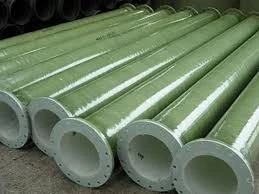
-
 Afrikaans
Afrikaans -
 Albanian
Albanian -
 Amharic
Amharic -
 Arabic
Arabic -
 Armenian
Armenian -
 Azerbaijani
Azerbaijani -
 Basque
Basque -
 Belarusian
Belarusian -
 Bengali
Bengali -
 Bosnian
Bosnian -
 Bulgarian
Bulgarian -
 Catalan
Catalan -
 Cebuano
Cebuano -
 China
China -
 China (Taiwan)
China (Taiwan) -
 Corsican
Corsican -
 Croatian
Croatian -
 Czech
Czech -
 Danish
Danish -
 Dutch
Dutch -
 English
English -
 Esperanto
Esperanto -
 Estonian
Estonian -
 Finnish
Finnish -
 French
French -
 Frisian
Frisian -
 Galician
Galician -
 Georgian
Georgian -
 German
German -
 Greek
Greek -
 Gujarati
Gujarati -
 Haitian Creole
Haitian Creole -
 hausa
hausa -
 hawaiian
hawaiian -
 Hebrew
Hebrew -
 Hindi
Hindi -
 Miao
Miao -
 Hungarian
Hungarian -
 Icelandic
Icelandic -
 igbo
igbo -
 Indonesian
Indonesian -
 irish
irish -
 Italian
Italian -
 Japanese
Japanese -
 Javanese
Javanese -
 Kannada
Kannada -
 kazakh
kazakh -
 Khmer
Khmer -
 Rwandese
Rwandese -
 Korean
Korean -
 Kurdish
Kurdish -
 Kyrgyz
Kyrgyz -
 Lao
Lao -
 Latin
Latin -
 Latvian
Latvian -
 Lithuanian
Lithuanian -
 Luxembourgish
Luxembourgish -
 Macedonian
Macedonian -
 Malgashi
Malgashi -
 Malay
Malay -
 Malayalam
Malayalam -
 Maltese
Maltese -
 Maori
Maori -
 Marathi
Marathi -
 Mongolian
Mongolian -
 Myanmar
Myanmar -
 Nepali
Nepali -
 Norwegian
Norwegian -
 Norwegian
Norwegian -
 Occitan
Occitan -
 Pashto
Pashto -
 Persian
Persian -
 Polish
Polish -
 Portuguese
Portuguese -
 Punjabi
Punjabi -
 Romanian
Romanian -
 Russian
Russian -
 Samoan
Samoan -
 Scottish Gaelic
Scottish Gaelic -
 Serbian
Serbian -
 Sesotho
Sesotho -
 Shona
Shona -
 Sindhi
Sindhi -
 Sinhala
Sinhala -
 Slovak
Slovak -
 Slovenian
Slovenian -
 Somali
Somali -
 Spanish
Spanish -
 Sundanese
Sundanese -
 Swahili
Swahili -
 Swedish
Swedish -
 Tagalog
Tagalog -
 Tajik
Tajik -
 Tamil
Tamil -
 Tatar
Tatar -
 Telugu
Telugu -
 Thai
Thai -
 Turkish
Turkish -
 Turkmen
Turkmen -
 Ukrainian
Ukrainian -
 Urdu
Urdu -
 Uighur
Uighur -
 Uzbek
Uzbek -
 Vietnamese
Vietnamese -
 Welsh
Welsh -
 Bantu
Bantu -
 Yiddish
Yiddish -
 Yoruba
Yoruba -
 Zulu
Zulu
fiberglass food grade equipment a closer look at its features and ...
A Closer Look at Fiberglass Food Grade Equipment Features and Benefits
In the realm of food processing, safety and hygiene are paramount concerns. Consequently, the materials used in manufacturing food grade equipment play a critical role in ensuring both product integrity and public health. One innovative material that has gained prominence in this sector is fiberglass. This composite material is increasingly being used to produce equipment that meets food safety standards. This article will delve into the features and benefits of fiberglass food grade equipment, highlighting why it is a preferred choice for many food industry applications.
Understanding Fiberglass
Fiberglass is made from fine strands of glass woven together and reinforced with a resin binding agent. This combination results in a robust, lightweight material that exhibits impressive physical and chemical properties. When designed specifically for food applications, fiberglass equipment is manufactured to comply with strict food safety regulations.
Key Features
1. Durability One of the standout features of fiberglass food grade equipment is its durability. It is resistant to impact, corrosion, and wear, making it ideal for demanding food processing environments where equipment is frequently subjected to harsh conditions, chemicals, and cleaning agents. This durability ensures a longer lifespan for the equipment, reducing the need for frequent replacements.
2. Hygienic Surface Fiberglass has a smooth, non-porous surface that is easy to clean and sanitize. This characteristic is essential in food processing, where contamination can lead to foodborne illnesses. The seamless design of fiberglass equipment minimizes the risk of bacteria accumulation, thereby promoting hygiene and food safety.
3. Lightweight Compared to metals, fiberglass is significantly lighter, which facilitates easier handling and transportation. This advantage can lead to labor savings and easier installation in food processing facilities, where mobility and flexibility are often crucial.
4. Chemical Resistance Fiberglass exhibits excellent resistance to a broad range of chemicals. This makes it suitable for a variety of food processing scenarios, including those involving acids, caustics, and cleaning solutions. Equipment made from fiberglass will not degrade or lose integrity when exposed to these substances, ensuring consistent performance over time.
fiberglass food grade equipment a closer look at its features and ...

5. Temperature Tolerance Although fiberglass has its limitations concerning extreme temperatures, many fiberglass food grade products are engineered to withstand a range of operational environments. This versatility makes them suitable for both chilling and heating processes commonly found in the food industry.
6. Compliance with Regulations Fiberglass food grade equipment is designed to meet stringent industry standards and regulations, such as those set by the U.S. Food and Drug Administration (FDA). This compliance provides peace of mind to manufacturers and consumers alike, ensuring that the equipment is safe for food contact.
Benefits in the Food Industry
1. Cost-effectiveness The combination of durability, longevity, and low-maintenance requirements means lower long-term costs for businesses. While the initial investment in fiberglass equipment may be higher than cheaper alternatives, the reduced downtime and maintenance expenses can result in substantial savings.
2. Enhanced Productivity The lightweight and easy-to-clean nature of fiberglass equipment can lead to more efficient operations. Workers can move and clean the equipment more quickly, leading to reduced labor time and increased overall productivity.
3. Sustainability Many manufacturers today are focusing on sustainability, and fiberglass can be a greener alternative to some traditional materials. It is often made from recycled glass, and its durability means that it doesn’t need to be replaced as often as other materials, thereby reducing waste.
Conclusion
Fiberglass food grade equipment represents a significant advancement in the food processing industry. With its unique combination of durability, hygiene, and compliance, it serves as an ideal solution for a wide range of food applications. As the industry continues to prioritize safety and efficiency, fiberglass equipment is likely to become even more prevalent, ensuring that businesses can meet consumer demands while maintaining the highest standards of quality and safety.









